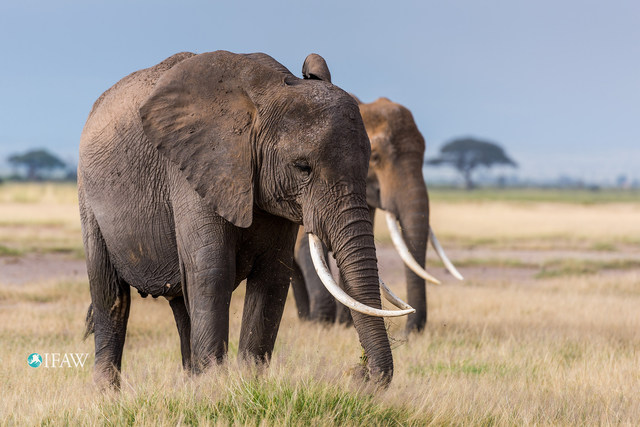
2016 was another tragic year for elephants around the world. More than 18 tons of illegal ivory, plus 949 elephant tusks and more than 3,000 pieces were reportedly seized in 2016, with at least 15 large seizures in excess of 500 kilograms. Most large shipments were intercepted in Vietnam, although huge amounts were also found in Malaysia, Uganda, Tanzania, Sudan, Spain, Austria and Germany.
"It is a sad fact that practically no day goes by without dozens of elephants being killed by poachers and every single week this year enforcers discovered illegal ivory somewhere in the world," said Rikkert Reijnen, Director of the Wildlife Trade Program for International Fund for Animal Welfare (IFAW). "And this is just the tip of the iceberg as only a small fraction of the illegal ivory on the market is being intercepted."
A new study was published in August: the Great Elephant Census. It was the first-ever continent-wide survey of African savannah elephants that was conducted over two years. The results shocked conservationists worldwide, as it shows that elephants populations declined by 30 percent between 2007 and 2014 – this equals 144,000 elephants! The current rate of decline is 8 percent per year, primarily due to poaching. If the current trend continues, we could see the population down to 160,000 by 2025.
"Elephants have reached the tipping point and the next five years are critical if we want to turn this around," said Reijnen. "A lot has been done in 2016 to stop the crisis, but it is not enough, if we want future generations to see elephants roam the savannah rather than just read about them in books about species long gone."
This year has seen some important changes in wildlife-trade legislation. France, China and the USA announced stricter ivory trade regulations and the EU introduced an action plan against wildlife trafficking. During the CITES-conference (Convention on International Trade in Endangered Species of Wild Fauna and Flora) several decisions were taken to improve the protection of elephants from international trade.
IFAW is advocating for a complete ban on international ivory trade, the closure of domestic ivory markets and the destruction of ivory stockpiles.
IFAW is working with international organizations such as INTERPOL and law enforcement bodies to combat wildlife and environmental crime. In collaboration with Kenya Wildlife Service (KWS), IFAW started a pilot project in Kenya called tenBoma that uses the newest data technology to enable rangers and enforcers to stop poachers before they kill. In consumer countries like China, IFAW is raising awareness to stop people from buying wildlife products and conducting trainings to equip enforcers with the necessary expertise to detect illegal wildlife products.
For more information, visit www.ifaw.org.














